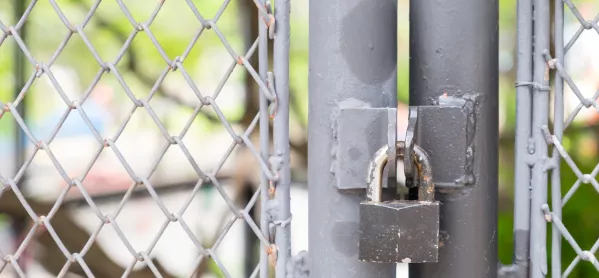
- Home
- ‘The science cannot tell us when schools should reopen’
‘The science cannot tell us when schools should reopen’

We will be guided by the science. Schools will only open when it is safe to do so.
It’s a seductive proposition. And entirely understandable. We all want schools to stay closed for most until it’s safe - for teachers and pupils alike.
And the speculation that has been rife has been far from helpful.
However, we owe it to ourselves to have a realistic conversation. And the reality is that science can’t give us a clear indicator that will suddenly flash green so we can all agree it’s now “safe”.
When should schools open?
There’s a reason that the government’s five tests for easing lockdown don’t have any numbers attached to them. Until a vaccine emerges, which is potentially a year away or more, any decisions are based on a balance of fast-moving scientific probability. And while the Scientific Advisory Group for Emergencies (SAGE) is working 24/7, this group doesn’t and won’t have unequivocal answers to the questions everyone in education wants to know.
Are children less likely to get the disease? Most studies say yes.
Are they less likely to pass it on to others, or to staff? Some tentative evidence from several countries says yes, but who knows what future evidence will say.
Do teachers need PPE? On balance, the Department for Education says probably not for most (though adults working with very disabled children and supporting therapeutic care may require it).
Is some form of social distancing in schools necessary? Certainly, but there are real questions about how that works in practice.
How low does the daily infection rate and death rate need to get before we reopen? With or without science, that’s an impossible question to answer.
Countries reopening schools
Looking at other countries that are reopening schools doesn’t help. Denmark is prioritising the youngest children, Germany is restarting with the eldest.
So the uncomfortable, but altogether more honest, question we should be asking is this: when should schools reopen, weighing up the scientific balance of opinion on pupil and staff safety against other public policy objectives?
There are three other factors that need to be taken into account.
Firstly, educational loss.
The current crisis will likely exacerbate inequalities in educational outcomes because we know not everyone is learning equally during lockdown. For some groups, the risk is that this period of absence means fundamental building blocks could be missed - in children’s early reading, for example. For others, it means they may not be supported during their major education milestones. Year 6s about to transition into new schools, Year 10s preparing to sit GCSEs next summer and Year 12s preparing to sit A levels must surely be top of this list.
Secondly, children’s mental health and wellbeing.
Although some children are enjoying this period of being at home, some are not. There are children who depend, for safeguarding reasons, on their teachers - and many are not currently in school. Others are likely to be suffering anxiety from a loss of routine and familiarity, as well as the simple desire to see friends. For some, this could result in or exacerbate longer-term mental ill-health.
And thirdly - and most controversially for teachers - the economic case.
Schools are, of course, much more than childcare. But they are also undeniably a mechanism that supports a functioning labour market. The short- and long-term economic impact of lockdown is becoming clearer on a daily basis, and it’s naive to suggest that it isn’t legitimate - responsible, even - for the government to take that into account. It’s also true that the longer the economy is kept in hibernation, the lower the level of tax being collected will be, and the greater the chance of renewed education austerity.
More questions
Alongside all of that, there are questions of practicality. When will parents be willing to send children in? When will those teachers who are not in school be comfortable going in? Can schools reopen if the supporting infrastructure, from cleaners to lunches to school transport, doesn’t also open alongside them? How much notice do schools need? What elements of practice should be mandated, and what should be left to heads to decide?
When and how to reopen schools is one of the most difficult decisions that a peacetime government may ever need to take. The DfE is, of course, talking to heads, to unions, to LAs and other children’s services - as well as to the scientists - to make sure they gather as much information and feedback as they can. But this process can’t and won’t give them easy answers.
It’s human nature to crave certainty. To yearn for that one data point that says it’s all ok. To find the signal among the noise.
But the awful truth is that we won’t have it. The science will not tell us. This decision of when and how to reopen will have to be made amid huge, daunting, uncertainty.
And when the decision is made, the concept of public service, that has shone so brightly from the teachers over the past few weeks, will never be more important.
Jonathan Simons is a director at Public First and head of the Education Practice
Register with Tes and you can read five free articles every month, plus you'll have access to our range of award-winning newsletters.
Keep reading for just £4.90 per month
You've reached your limit of free articles this month. Subscribe for £4.90 per month for three months and get:
- Unlimited access to all Tes magazine content
- Exclusive subscriber-only stories
- Award-winning email newsletters
You've reached your limit of free articles this month. Subscribe for £4.90 per month for three months and get:
- Unlimited access to all Tes magazine content
- Exclusive subscriber-only stories
- Award-winning email newsletters



